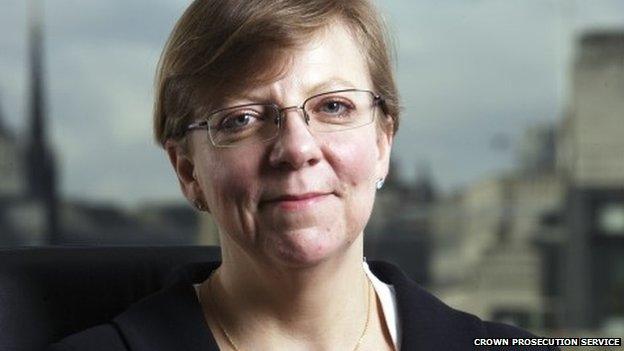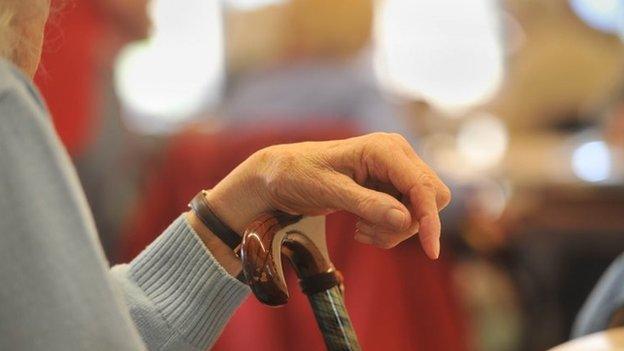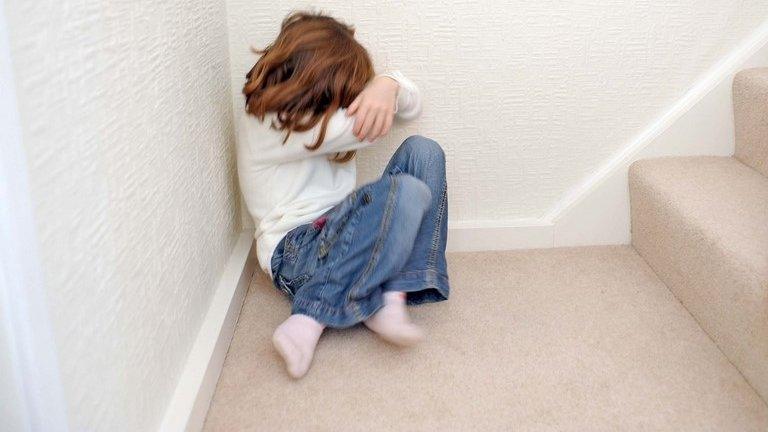Prosecutors given guidance on teen and elderly abuse
- Published

Director of Public Prosecutions Alison Saunders said teenagers may not see themselves as victims
New guidelines are to be introduced for prosecutors handling cases of domestic abuse among the elderly and teenagers.
The Crown Prosecution Service (CPS) advice for England and Wales says older people may face more frequent attacks because they are less independent.
It makes clear abuse may not always involve violence - warning that young people my face abuse via mobile phones and social media.
The advice will be consulted on before coming into force.
'Partner violence'
The CPS points out that people's experiences of domestic abuse change as they get older.
It says the intensity of abuse may be greater among pensioners because they may feel less able to escape or to get help as they are dependent on their abuser.
Director of Public Prosecutions (DPP) Alison Saunders said: "We know from research conducted by others that there is very little evidence that partner violence decreases with age.
"And it is important we also recognise the factors that may contribute to and impact upon domestic abuse between older people."

The CPS guidelines say people are more vulnerable to domestic abuse as they get older
The new guidance, which is intended to help prosecutors in England and Wales decide when to bring charges against perpetrators of domestic abuse, is yet to come into force.
The issue of elderly abuse was brought into the spotlight following the death of 81-year-old Mary Russell.
She was abused by her husband and died following a "domestic-related" incident in 2010, suffering a bleed to the brain.
The pensioner, of Leigh-on-Sea in Essex, had made eight 999 calls in the seven months before her death.
Exclusion and isolation
She made her first report to police in 2003 after she was found standing on her doorstep with a bloody nose.
Albert Russell, 88, the victim's husband, was arrested following her death, but it was decided there was insufficient evidence to prosecute him. He has since died.
The draft guidance claims that growing older can lead to exclusion or isolation, which may make a victim more vulnerable to domestic abuse.

The advice said abuse among younger people could be online
For younger victims, prosecutors are advised to consider abusive relationships which form part of the membership of a gang.
Some victims may be coerced into sexual activity in return for protection or status, according to the guidance.
It advises prosecutors to ask police about a victim's family life to determine whether telling their parents about any potential prosecution might affect their safety.
'Honey traps'
Consideration should be given to bail restrictions and restraining orders, the code also says, and prosecutors should take into account areas which victims often visit, like school or social clubs, and methods of contact, such as social media.
The guidance also advises prosecutors on abusive relationships within gangs, highlighting the fact that some victims may be coerced into sex in return for protection or status.
"Some teenagers may not consider themselves victims of domestic violence, especially if they are not being physically abused but are being targeted on social media for example," Ms Saunders added.
"Similarly, abuse in gang environments - for example young girls being forced into sexual activity as part of gang initiation or used as 'honey traps' to set up rival gang members - is often not reported.
"Understandably, a lot of my prosecutors will not be familiar with the workings of gang culture or gang slang so I have included it in the proposed guidance so that they know what to look for when considering such cases."
- Published9 May 2014

- Published28 April 2014

- Published7 May 2014
